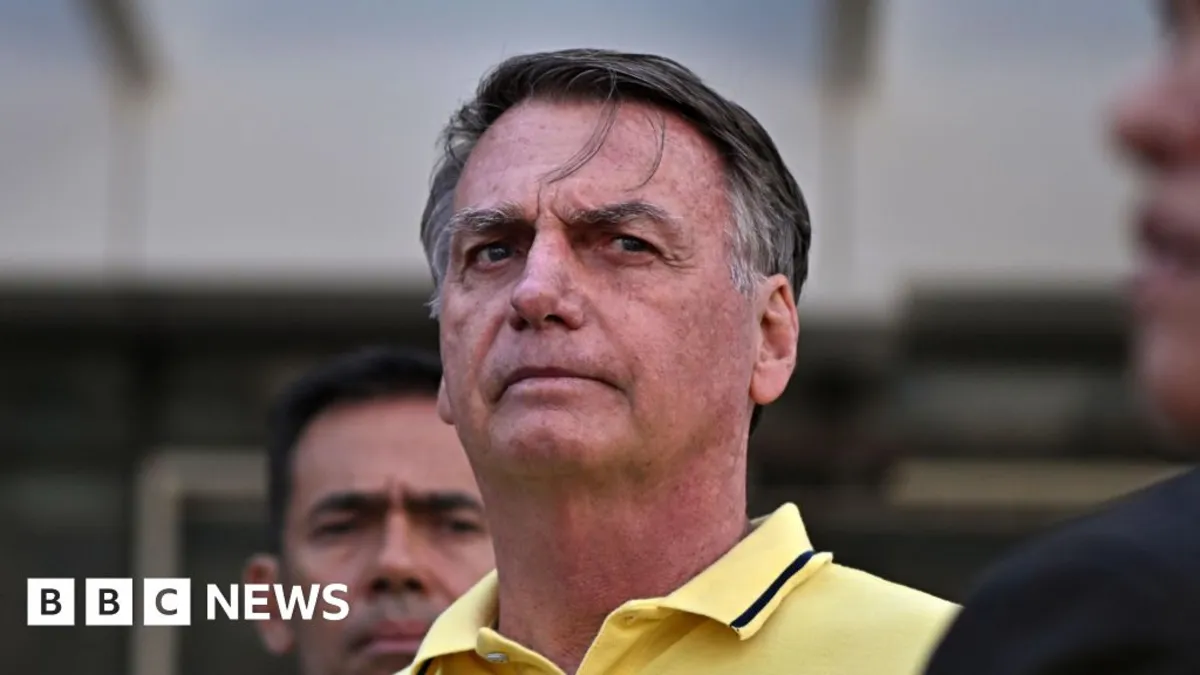
This is a significant moment for Brazil. Former President Jair Bolsonaro has been found guilty of attempting a coup and leading an armed criminal organization following his defeat in the last election. This tumultuous period culminated in his supporters launching an outrageous attack on government buildings. The Supreme Court of Brazil has imposed a staggering 27-year prison sentence on Bolsonaro, with four out of five justices concluding that he was indeed guilty of these serious charges.
For years, Jair Bolsonaro has been a figure of deep division within the country, creating a rift between fervent supporters and staunch opponents. Notably, his supporters include prominent figures like former U.S. President Donald Trump, who have criticized the trial as an act of political persecution. In response to the verdict, Trump has introduced a hefty 50% tariff on Brazil, expressing his dissatisfaction with the judicial proceedings. U.S. Secretary of State Marco Rubio has also weighed in, indicating that the U.S. would respond to what he termed a "witch hunt."
Eduardo Bolsonaro, the ex-president's son, has been actively lobbying in the United States on behalf of his father, anticipating further sanctions from U.S. authorities. Previously, the U.S. had already sanctioned Supreme Court judge Alexandre de Moraes, who has played a pivotal role in these proceedings. Critics of Bolsonaro have welcomed the trial, viewing it as essential for providing closure and establishing a precedent that undermining democracy will not be tolerated.
The trial has captured the attention of millions across Brazil, with live-streaming on social media and television making it accessible to the public. The dramatic developments have felt almost cinematic, especially when recalling the shocking events of January 8, 2023, when thousands of Bolsonaro's supporters stormed government buildings, echoing the January 6 Capitol riots in the United States.
Throughout the trial, shocking evidence has emerged, including a disturbing plan allegedly drafted by Bolsonaro's allies aimed at assassinating President-elect Luiz Inacio Lula da Silva, his running mate, and Supreme Court judge Alexandre de Moraes. This plan, reportedly found at the presidential palace, even mentioned using poison as a method to eliminate Lula. Bolsonaro's defense attorney vehemently argued that there was no direct evidence linking Bolsonaro to this assassination plot or the January 8 riots.
The court also discussed Bolsonaro's efforts to undermine the electoral system, including a meeting held at the presidential palace with foreign ambassadors, where he made false claims about electronic voting machines prior to the election. On election day, public bodies were reportedly obstructing voters under the pretext of vehicle inspections, further complicating the democratic process.
At various points during the trial, judges reflected on Brazil's tumultuous history. The nation's democracy is relatively young, having been restored in 1985 after two decades of military dictatorship supported by the U.S. The parallels drawn by critics between Bolsonaro’s actions and past authoritarian regimes are particularly unnerving. Judge Alexandre de Moraes highlighted the risk of Brazil forgetting its past struggles against dictatorship, warning that a political organization unable to accept electoral defeat could threaten democracy.
Bolsonaro's conviction marks a crucial milestone, but the implications of his sentence remain uncertain. At 70 years old, his sentence effectively amounts to a life term, with judges stating that at least 24 years and 9 months must be served in prison. Bolsonaro is likely to appeal the length of his sentence and may seek to have it converted to house arrest, a privilege he is currently enjoying.
Bolsonaro did not attend the courtroom for the verdict, citing health issues stemming from an assassination attempt during his 2018 campaign. Brazil has a precedent for granting house arrest to convicts based on age or health conditions. Moreover, Congress, where Bolsonaro's party holds a majority, is pushing for legislation that could provide him with amnesty. A right-wing candidate for the upcoming presidential election has also indicated he would offer Bolsonaro amnesty if elected, further complicating the political landscape.
In summary, while the ruling against Jair Bolsonaro represents a pivotal moment in Brazilian history, the future of his punishment, as well as the broader implications for Brazil's democracy, remain to be seen.